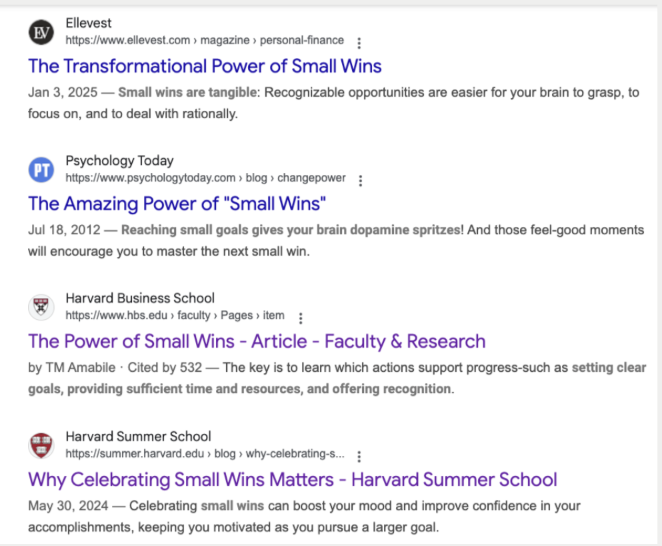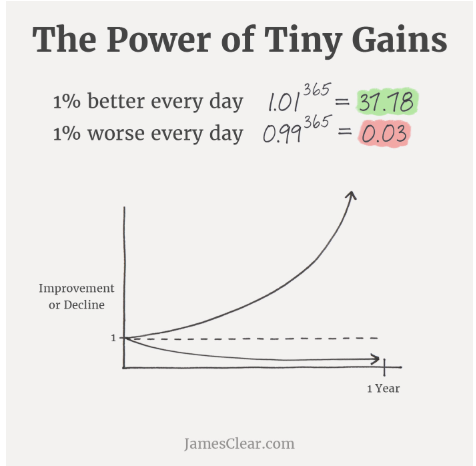“Small Wins” are Overrated
We love small wins at RESET. We are not alone!
But we want you to get a lot of small wins, not just 1 or 2. Part of building habits, part of training your executive functioning systems, is consistency.
Small wins don't matter in isolation; they matter because they compound.
Let's back up.
What Do Small Wins Actually Look Like?
Small wins in EF coaching look like this -
Emailing a teacher to ask about makeup opportunities
Getting downstairs ready to go 5 minutes before you have to leave for school
Practicing the violin for one minute after a three-month hiatus
We used to really hype these up. "You emailed your teacher, awesome!" (And to be honest we still do that.)
But we would often see small wins in isolation - an email here, a make-up there, and then falling back into old habits. The small wins need to exist in a larger context, a plan that you've developed with your coach. You need a map of how they add up - how will that one make-up assignment turn into 17 make-up assignments? Without that, it feels hollow.
Overhyping small wins can feel inauthentic to teens, too. They're typically not as excited as we are by them. They understand, correctly, that dividing a 10-page essay into more manageable chunks still leads to the same basic place - the pain of writing a 10-page essay.
Compounding only works when you ... compound
Everyone loves to talk about compounding: math teachers, EF coaches, habit gurus, economists. James Clear, for example, put together this graph -
- suggesting that a mere 1% improvement lead to to a 37x improvement over the course of a year!
But this is actually incredibly hard. Our EF clients don't take issue with the 1% better part. They take issue with the 365 days in a row part.
A far more common pattern at RESET is -
Solid progress during our intensive three-week kickoff
A regression when meeting frequency decreases
Old habits creeping back in
The need to reset and rebuild
This progress is not linear. Yes, celebrate the small wins. But remember: they stay small unless you string them together!

